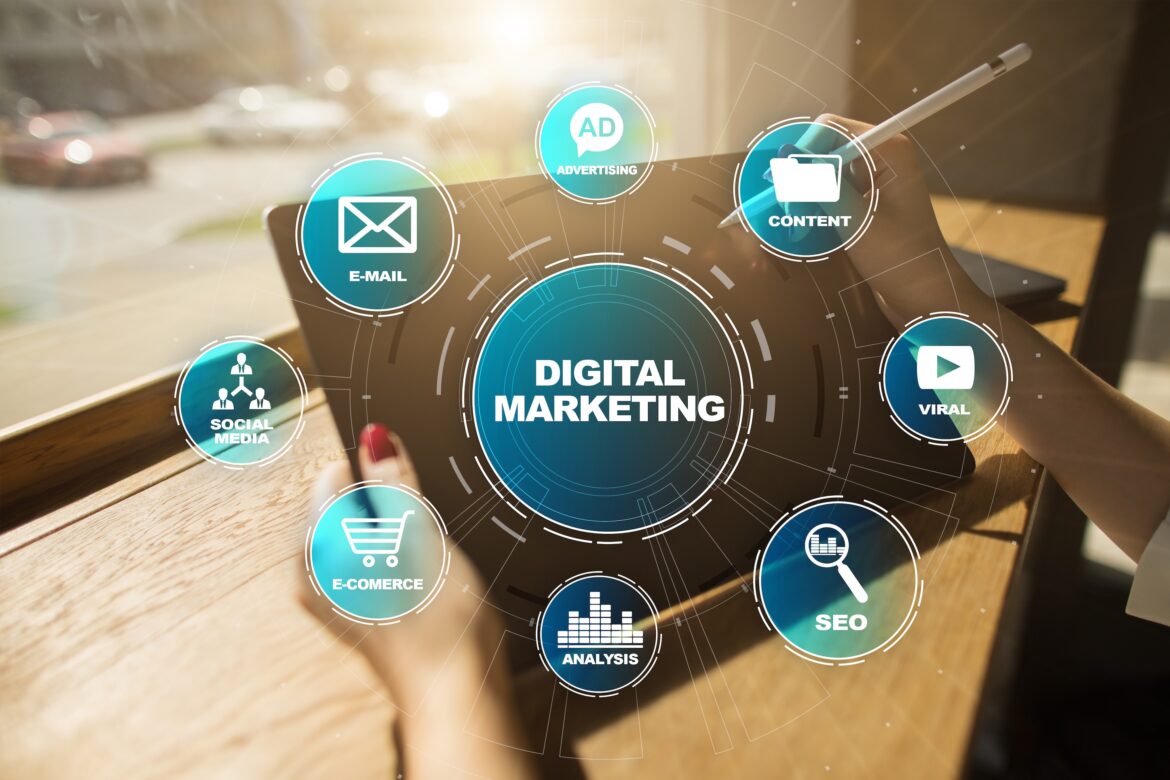
Digital marketing has transformed the way businesses connect with customers. Companies across different industries use online strategies to boost visibility, attract clients, and increase revenue. Whether in retail, healthcare, finance, or education, a well-planned digital approach helps businesses remain competitive. Long-term success often depends on how well organizations use powerful tools to reach the right target audiences. A closer look at different industries reveals how digital marketing plays a key role in their growth.
Enhancing Retail and E-commerce Growth
Retail and e-commerce businesses depend heavily on digital marketing to drive sales. Online ads, social media marketing, and search engine optimization (SEO) help brands attract customers. Personalized email marketing and targeted promotions encourage repeat purchases. For example, an online clothing store can use social media ads to showcase new collections and drive traffic to its website. Without an effective digital presence, retail brands risk losing customers to competitors with stronger online engagement.
To improve their digital marketing efforts, many businesses choose to hire Jumpfactor or their agency of choice. Such agencies specialize in strategies that enhance online visibility and drive conversions.
Strengthening Brand Loyalty in Consumer Goods
Companies selling consumer goods use digital marketing to build brand loyalty. Social media engagement, email marketing, and interactive content keep customers interested. A skincare brand, for example, can use Instagram reels to demonstrate product benefits and engage with followers. Customer reviews and testimonials further enhance trust, influencing purchasing decisions.
By maintaining an active online presence to let consumers know more about Protein Chefs and other consumer goods businesses, they can keep a loyal customer base.
Strengthening Brand Presence in Healthcare
Healthcare providers also rely on digital marketing to connect with patients. Hospitals, clinics, and private practices use websites, social media platforms, and online reviews to build trust. Content marketing plays a crucial role, offering educational articles, blogs, and videos that provide helpful information.
A dental clinic, for instance, can publish articles about oral hygiene while promoting services like teeth whitening. With more people searching for health solutions online, digital marketing ensures that healthcare providers remain accessible and credible.
Expanding Opportunities for Financial Services
Financial institutions use digital marketing to educate clients and promote services. Banks, investment firms, and insurance companies use SEO to rank higher in search results, making it easier for potential clients to find them.
Pay-per-click (PPC) advertising also helps target specific demographics based on age, income, and financial goals. For example, a bank offering home loans can run a digital marketing campaign targeting first-time buyers. By leveraging effective marketing strategies, financial services can attract more clients and build lasting relationships.
Increasing Enrollment in Education and Training
Schools, universities, and online training platforms use digital marketing to attract students. Social media ads on different digital channels, email campaigns, and informative blogs help educational institutions reach learners globally. Webinars and free trial courses provide an opportunity for potential students to experience a program before enrolling.
For instance, an online coding school can use YouTube ads to showcase student success stories. Digital marketing allows institutions to highlight their unique offerings and stand out in a competitive industry.
Driving Customer Engagement in Hospitality and Tourism
The hospitality and tourism industry depends on digital marketing to attract travelers. Hotels, travel agencies, and airlines use engaging visuals, social media promotions, and influencer partnerships to reach potential customers.
A hotel, for example, can showcase its amenities through virtual tours on its website. Online reviews also play a vital role, as positive feedback influences booking decisions. With the right digital marketing efforts, businesses in this industry can attract tourists and increase reservations.
Boosting Awareness for Manufacturing and B2B Companies
Manufacturing and business-to-business (B2B) companies benefit from digital marketing by increasing brand awareness. These industries use SEO, LinkedIn marketing, and content-driven strategies to reach decision-makers.
A manufacturer producing industrial equipment can create relevant content explaining how its products improve efficiency. Email campaigns targeting business clients also help generate leads. With effective strategies, these companies can expand their reach and secure long-term partnerships.
Transforming Local and Small Businesses
Small businesses gain a competitive edge through digital marketing. Local restaurants, repair shops, and boutiques use social media and Google My Business to attract online customers to their area.
A local bakery, for example, can use Instagram to showcase its latest creations and run location-based ads to drive foot traffic. Digital marketing levels the playing field, allowing small businesses to compete with larger brands without requiring a massive budget.
Maximizing Results Through Data and Analytics

A major advantage of digital marketing is the ability to track and measure results. Businesses can analyze website traffic, social media engagement, and conversion rates to refine their strategies. If an online store notices that most visitors leave before making a purchase, it can adjust its website layout or improve checkout options. Data-driven insights allow businesses to optimize marketing efforts and increase return on investment.
Final Thoughts
Digital marketing has become a crucial tool for businesses across all industries. It helps companies reach wider audiences, engage with customers, and drive sales. Whether in retail, healthcare, finance, or education, businesses benefit from online strategies that strengthen their brand. With continuous advancements in technology, digital marketing will remain an essential part of business success. Companies that adapt and invest in strong digital strategies will continue to thrive in an increasingly competitive market.
